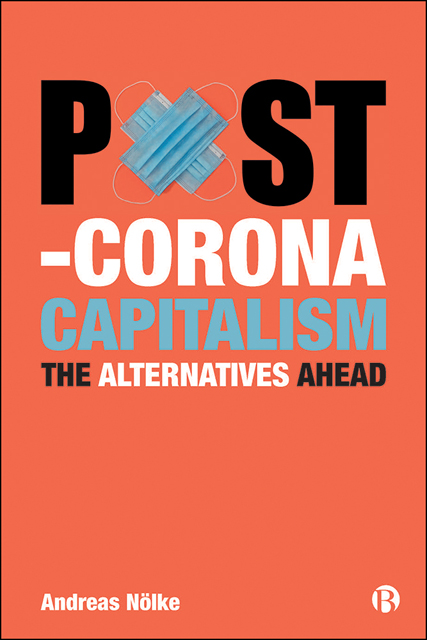Book contents
- Frontmatter
- Dedication
- Contents
- List of Abbreviations
- Acknowledgements
- Preface
- 1 Introduction: Confronting a Multidimensional Crisis of Capitalism
- Part I Capitalism and Society
- Part II Domestic Institutions of Capitalism on the Demand Side
- Part III Domestic Institutions of Capitalism on the Supply Side
- Part IV The International Institutions of Capitalism
- Part V Anthropocene Capitalism
- Part VI Geo-economic Shifts in Global Capitalism
- Part VII Ideologies in Contemporary Capitalism
- References
- Index
31 - Liberal or Organized Capitalism?
Published online by Cambridge University Press: 13 October 2022
- Frontmatter
- Dedication
- Contents
- List of Abbreviations
- Acknowledgements
- Preface
- 1 Introduction: Confronting a Multidimensional Crisis of Capitalism
- Part I Capitalism and Society
- Part II Domestic Institutions of Capitalism on the Demand Side
- Part III Domestic Institutions of Capitalism on the Supply Side
- Part IV The International Institutions of Capitalism
- Part V Anthropocene Capitalism
- Part VI Geo-economic Shifts in Global Capitalism
- Part VII Ideologies in Contemporary Capitalism
- References
- Index
Summary
During the coronavirus crisis, we have been witnessing a renewed role for the state. Some observers even claim that these increases mark the beginning of a new era of state capitalism, ending the current era of neoliberalism. Others point towards the very fast development of vaccines by pharmaceutical companies and argue in favour of a rebirth of liberalism. In order to make sense of these competing claims, we put them into the context of Political Economy debates about phases of capitalism; notably, its juxtaposition of liberal and organized ones. Are we moving towards liberal or organized capitalism?
Theories about phases of capitalism
Any observer of the historical development of the economy will notice that capitalism is not a timeless entity. Think, for example, about the changes that neoliberalism and the rise of the financial markets have brought to capitalism since the 1970s. Political Economy scholarship has produced several conceptual frameworks about phases of capitalism. There is a wealth of theories such as world systems, regulation or those named after Kondratieff, Marx or Schumpeter (Nölke, 2012, 2017; Nölke and May, 2019; Kilic, 2020). Arguably, the most widely used frameworks in contemporary research are the ‘social structures of accumulation’ approach (Kotz et al, 1994) and studies drawing on Polanyi (1944). Polanyi's concept of the double movement arguably has become the most popular mode of thinking about the historical development of the economy since the GFC. The basic idea is that we have a pendulum between liberal and social embedded capitalism. Liberal reformers try to dis-embed the economy by turning everything into a commodity. This gives rise to a countermovement seeking to re-embed the economy in social relations. While Polanyi had developed his ideas as a reaction to the Great Depression of the 1930s, it witnessed a revival after the Great Recession of 2007–09.
The social structures of accumulation (SSA) approach is less popular than Polanyi's idea, but is probably the most widely used one by those scholars systematically working on phases of capitalism today. Its basic idea is quite similar to those of Polanyi, but worked out in much more economic detail (Kotz et al, 1994). SSA scholars assume an alternation between liberal and regulated phases of capitalism. Each of the two types of phases ends in a specific form – liberal in a turbulent crisis and regulated in a long-term stagnation.
- Type
- Chapter
- Information
- Post-Corona CapitalismThe Alternatives Ahead, pp. 194 - 198Publisher: Bristol University PressPrint publication year: 2022



